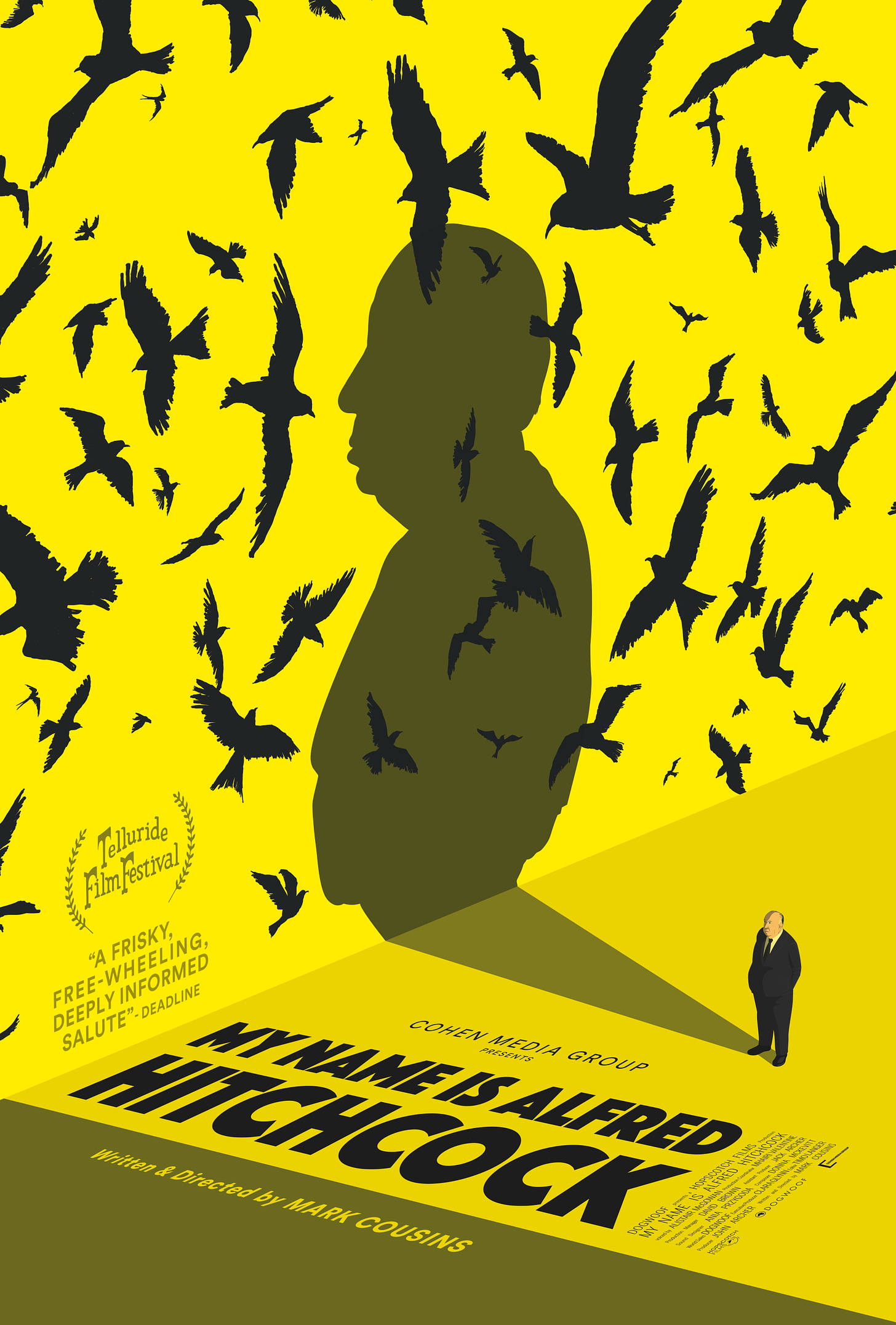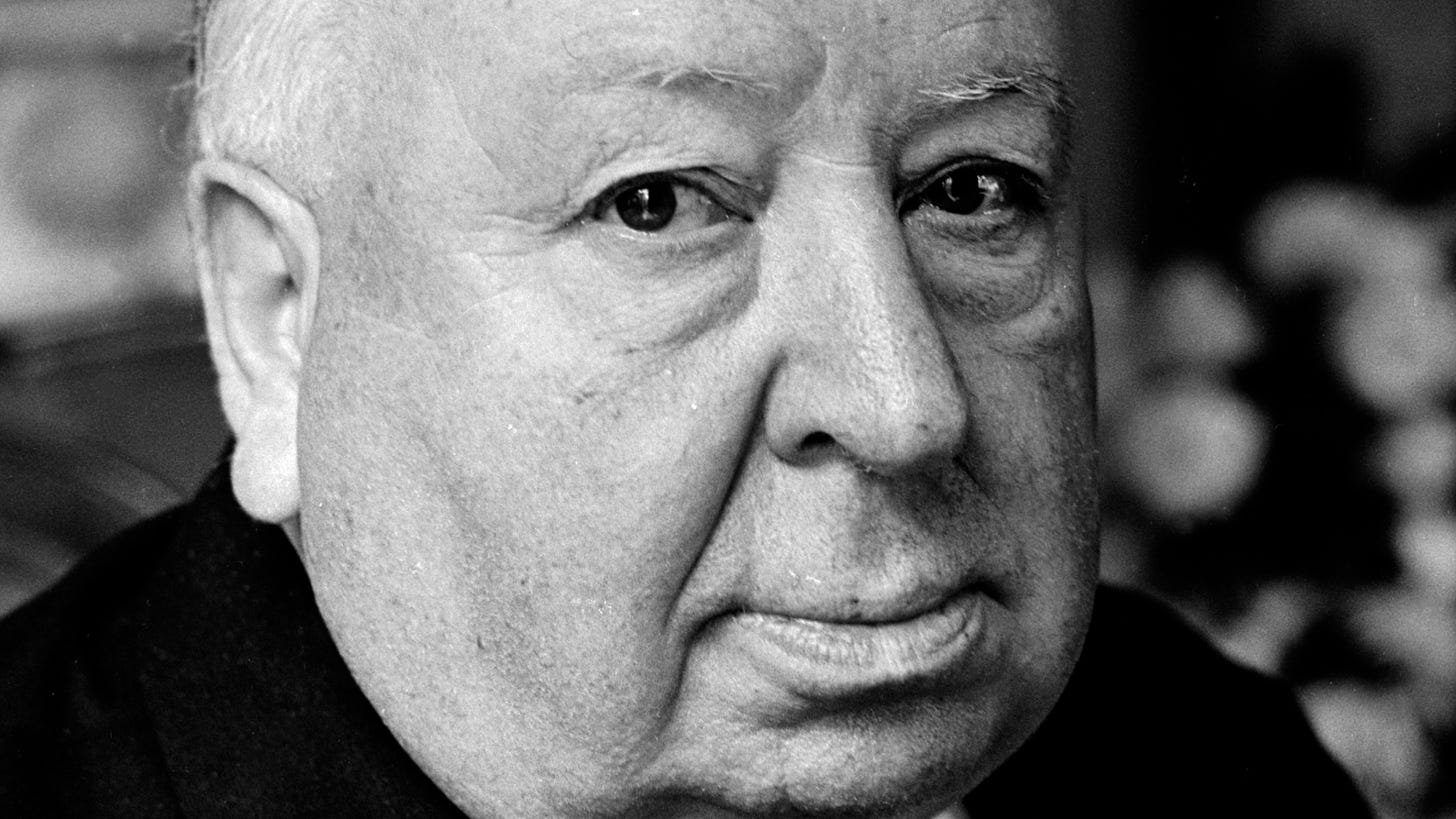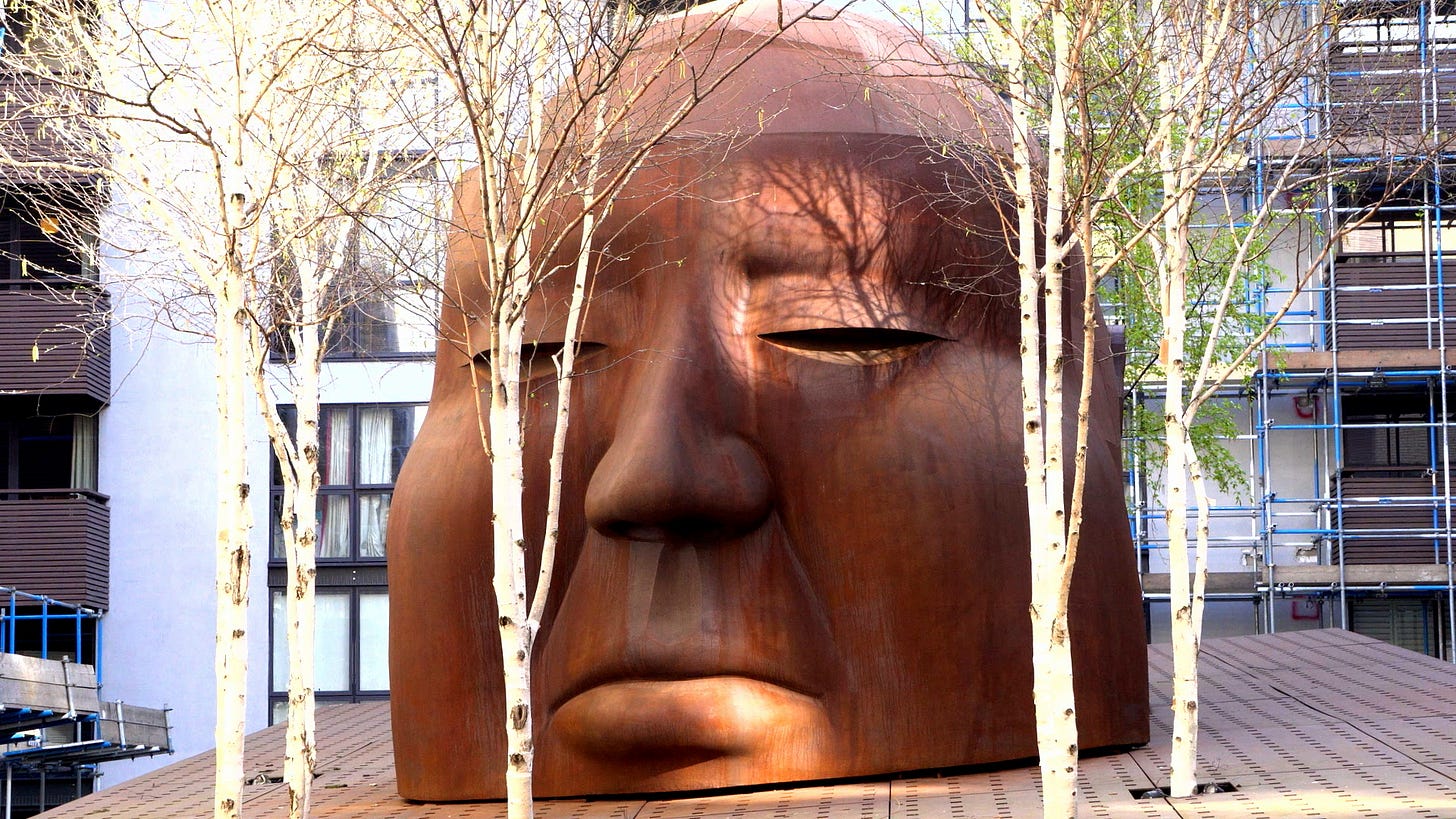October 23, 2024
FILM: MY NAME IS ALFRED HITCHCOCK
DIRECTED BY: MARK COUSINS
RATING: 3 out of 4 stars
By Dan Pal
Some of my readers might know that for years I taught a college course on the films of director Alfred Hitchcock. So, when I heard there was a documentary about the director finally getting a limited release two years after its Telluride Film Festival premiere, I was intrigued but cautious. What new could filmmaker Mark Cousins tell us that we didn’t already know? What angle could he take that would spark something fresh about Hitchcock’s work? Well, My Name is Alfred Hitchcock offers a unique approach on the master of suspense by using the director’s voice to discuss key ideas throughout his works. Of course, you’re probably aware that Hitchcock passed away over forty years ago so where Cousins gets the director’s words is a bit of a mystery.
Right at the start, Cousins notes on screen that the film was written and voiced by Hitchcock. Realistically this can’t be completely true. What would be possible would be to use actual recordings of Hitchcock discussing his films and/or quoting him from the various interviews he did over his career. Kent Jones did this in his 2015 film Hitchcock/Truffaut which utilized the recordings that the two famed directors did in the early 1960s. That approach gave some legitimacy to what viewers see and hear on screen. In this case though, Cousins has an actor serving as the narrator using Hitchcock’s voice as if the master is telling his own story. The problem is that we don’t really know if anything that is being said was actually said by Hitchcock himself. The film acknowledges at its conclusion that Hitchcock obviously did not narrate this film. We’ve been tricked all along…surprise! So, then what is the point of discussing Hitchcock’s films in this way? Why not actually use his own words?
Cousins also decides not to focus on some of the motifs that are commonly associated with Hitchcock’s works, such as the innocent man, blonde women, stairs, trains, birds, etc. Instead he suggests that the director primarily focused on areas such as escape, desire, loneliness, time, fulfillment, and height. While they are not the themes typically studied in Hitchcock’s films, Cousins (as Hitchcock) does offer some good support for their inclusion here. For instance, there are some interesting scenes discussed from films such as Dial M For Murder, The Birds, and Vertigo that illustrate Hitchcock’s suspenseful use of time. He describes the theme as something more akin to “time torture.” It’s an insightful idea. Whether Hitchcock ever intended this to be one of his recurring the motifs is not clear from the documentary. Structurally, some of the examples used seem somewhat random and haphazardly placed throughout the film.
Using an impersonation of Hitchcock’s voice does get a bit tiresome at times. There’s not a lot of modulation which may be representative of the director’s manner of speaking but to only hear that made me wish for other commentators who could break apart the tone a bit more. Going along with this are regular cuts to close-ups of Hitchcock’s face as if he is telling us directly his thoughts on his work. There are also cuts to an unknown Asian woman who, I guess, is supposed to represent viewers.
What is most interesting about My Name is Alfred Hitchcock though is its generous discussions of many films not typically addressed in the master’s oeuvre. Some of these include Murder!, Number Seventeen, Juno & the Paycock, Stage Fright and The Paradine Case. These have often been considered “lesser” Hitchcock works. But it’s clear from watching this documentary that perhaps a lot of us have underestimated the visually arresting technical language Hitchcock demonstrated within many of these films. There are shots used in some of them that are later found in more celebrated films such as North by Northwest and Frenzy. Seeing some of the scenes will likely prompt true Hitchcock fans to seek out more of his silent and lesser known films and that’s a good thing.
It is also fun to see some of the locations from Hitchcock’s films as they exist now. Cousins shows us many from around London and even some of the specific residences the director owned with his wife Alma during their long marriage. There are even some fascinating art works shown that have been created throughout London that pay tribute to the master.
I’ve no doubt that viewers that have a casual interest in Alfred Hitchcock’s films will find this documentary to be pretty illuminating. While there isn’t any mention of his television work, the film does provide a good sampling of the wide range of films from Hitchcock’s fifty-year career.
My Name is Alfred Hitchcock opens in limited theatrical release this week, including the Landmark at the Glen in Glenview, Illinois and the Wayfarer Theaters in Highland Park.
For the archive of PalCinema review click here.








Wow. I didn’t know Hitchcock filmed Juno and the Paycheck. That i would love to see.
Good film, but I agree that with Hitchcock’s slow speech style, it needed a bit more oomph.